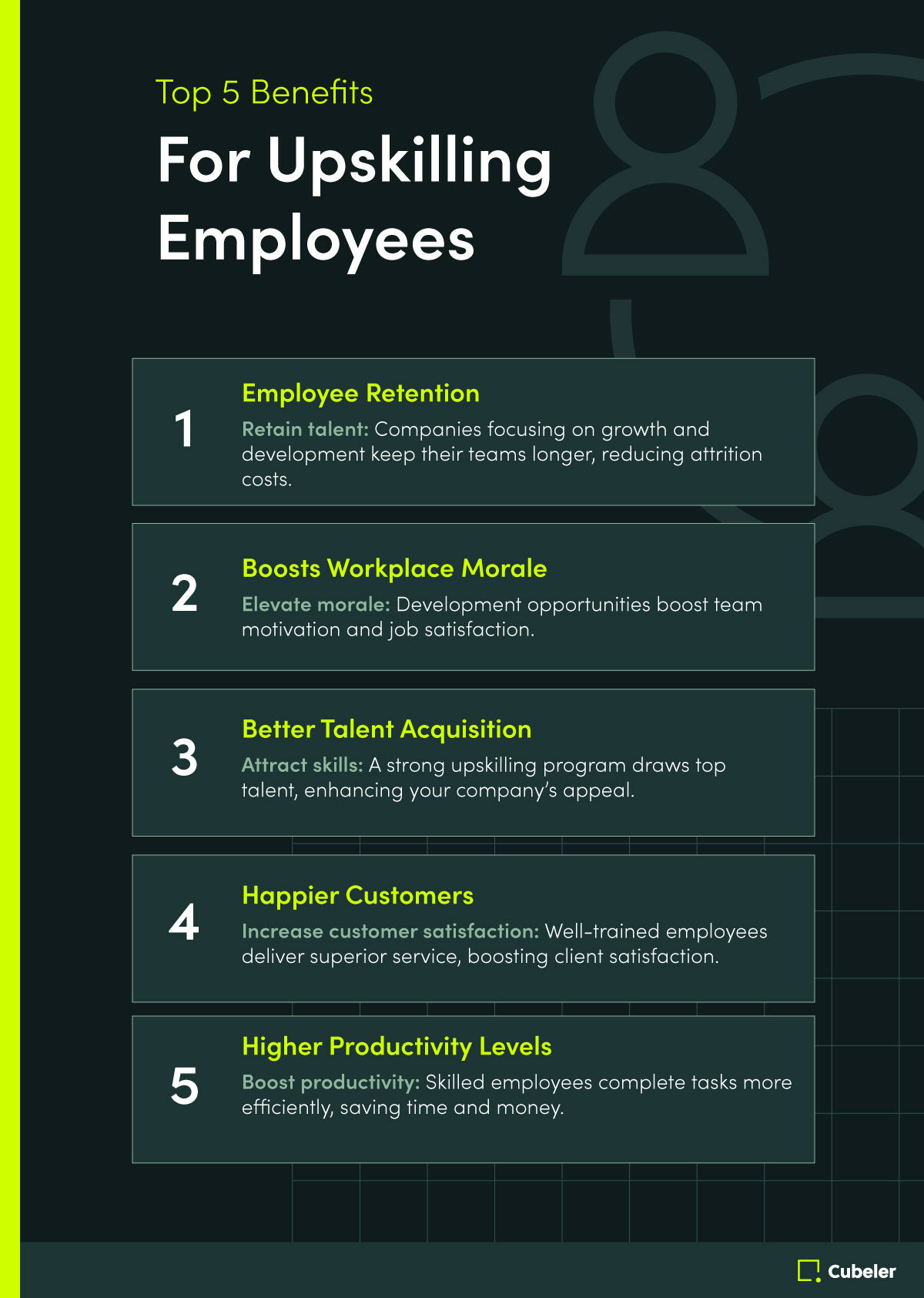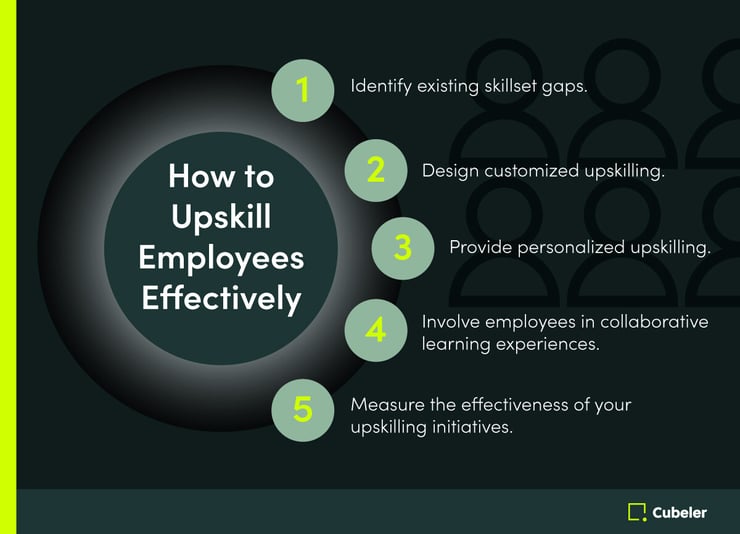3 min read
The Upskilling Rebellion: Challenging the Small Business Status Quo
By:
Cubeler en-ca
April 24, 2024 5:22:26 EDT PM

Got a small business? Harness the power of upskilling to innovate rapidly, disrupt market dynamics and rewrite the rules in your favour. Find out how here.
Table of contents
In a world where industry giants dominate the market, upskilling has emerged as a powerful tool for small businesses, embodying a strategic rebellion against the established norms of the business world.
This deliberate enhancement of skills allows smaller players to not only keep pace with, but also challenge and potentially outmaneuver, their larger counterparts. By embracing upskilling, small business owners can harness the power to innovate rapidly, disrupt existing market dynamics and rewrite the rules in their favour.
Today, upskilling is not merely a survival tactic—it’s a proactive strategy that empowers small companies to turn their size into their greatest asset, ensuring they remain competitive and relevant in a swiftly evolving marketplace.
Redefining the Business Battlefield
Typically, large corporations with deep pockets and extensive resources often set the standards and dominate markets, leaving small businesses to navigate a daunting environment of competitive pressures and market barriers.
This uneven playing field comes with hurdles that small businesses had little to zero chance of ever overcoming: limited access to capital, difficulties in attracting top talent and the struggle to gain market share against well-established brands.
Upskilling—essentially, training programs and development opportunities that expand skillsets and minimize skill gaps—changes everything, presenting small business owners with a golden opportunity to level the playing field.

What does upskilling mean to you? By investing in the continuous development of your team’s skills, you can equip yourself and your people with the latest tools and technology, positioning your company to outpace your far larger, often slower, more rigid competitors.
Unlike large corporations, which may face bureaucratic delays and resistance to change, small businesses can implement new skills and adapt to emerging trends with remarkable speed and flexibility. This agility can empower you, as a small business owner, to innovate more effectively, respond quicker to market changes and tailor your products or services to meet specific customer needs.
Ironically, upskilling transforms what many see as the greatest vulnerability of small enterprises—their size—into their most significant strategic advantage, allowing them to compete on, and even redefine, the battlefield.
|
Get the most out of upskilling your team
|
| Sign up now > |
Building a Strategic Upskilling Arsenal
In an increasingly digitized world, identifying the critical skills for disrupting your industry is key to transforming your small business into a formidable contender.
The first step involves a thorough analysis of industry trends and future projections to pinpoint areas ripe for innovation. Emerging technology, digital literacy and creative problem-solving stand out as pivotal areas where upskilling can significantly impact a small company’s competitive edge.
- Mastering artificial intelligence (AI) allows small enterprises to automate their business, streamline routine tasks, improve customer service, optimize operations and increase efficiency.
- Data analytics is another critical skill set, empowering small businesses to make informed decisions based on real-time insights, predict market trends and optimize their operations accordingly.
- Proficiency in user experience (UX) design can revolutionize a product’s interface, making it more intuitive and engaging, which is crucial for customer retention and satisfaction.
Investing in these key areas not only prepares small businesses to navigate the complexities of their industries but also positions them to lead with innovation.
By focusing on these strategic skill enhancements, small enterprises can carve out niche markets, disrupt traditional business models and establish themselves as leaders in the digital age.

Leading a Revolutionary Workforce
Leadership plays a pivotal role in cultivating a culture that values continuous learning and innovation, essential for leading a revolutionary workforce built on upskilling.
Inspiring and motivating your employees to embrace upskilling and challenge the status quo begins with setting a visionary example. Leaders should not only advocate for but actively participate in learning initiatives, demonstrating their commitment to growth and development.
To foster a supportive environment that encourages experimentation, it's crucial to establish a safe space for taking calculated risks:
- Recognizing and rewarding creative problem-solving and risk-taking can significantly enhance employee engagement and willingness to innovate.
- Regularly scheduled brainstorming sessions, open forums for sharing ideas and constructive feedback loops all contribute to a culture where new ideas are valued and explored.
This environment not only drives innovation but also positions the business as a dynamic player ready to disrupt and lead in its industry.
Bottom Line
The transformative power of upskilling is undeniable. It is very clear what you, as a small business owner, need to do: start your own upskilling rebellion.
The time to arm your team with new skills, challenge the status quo and position your business at the forefront of your industry is now.
|
Get the most out of upskilling your team
|
| Sign up now > |


/cubeler-insights-blog-1381x907.jpg)